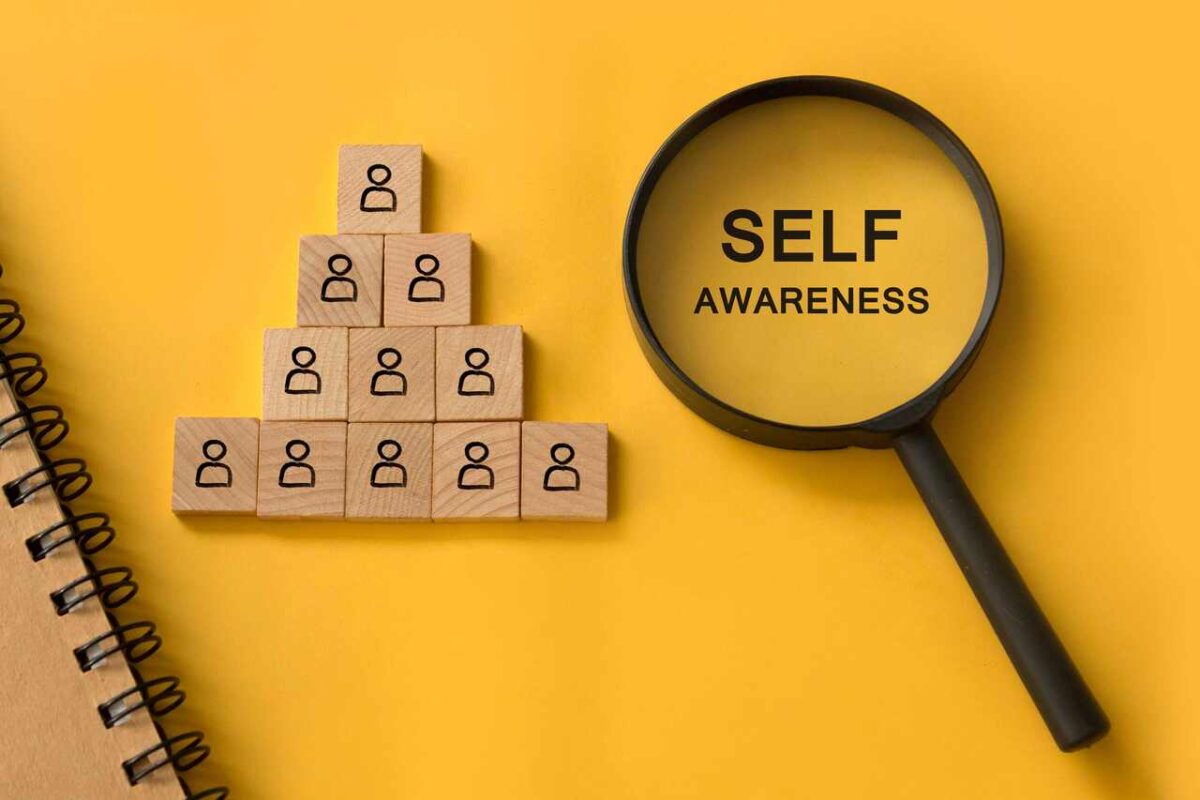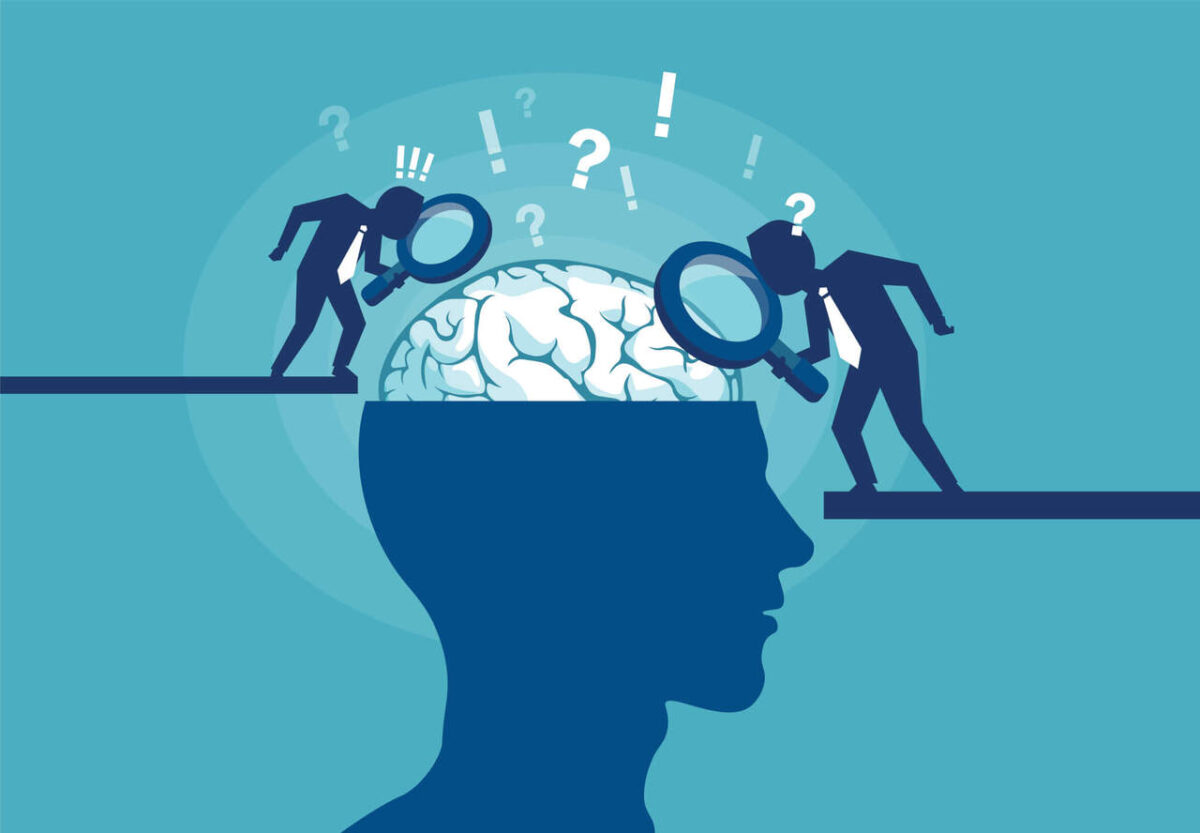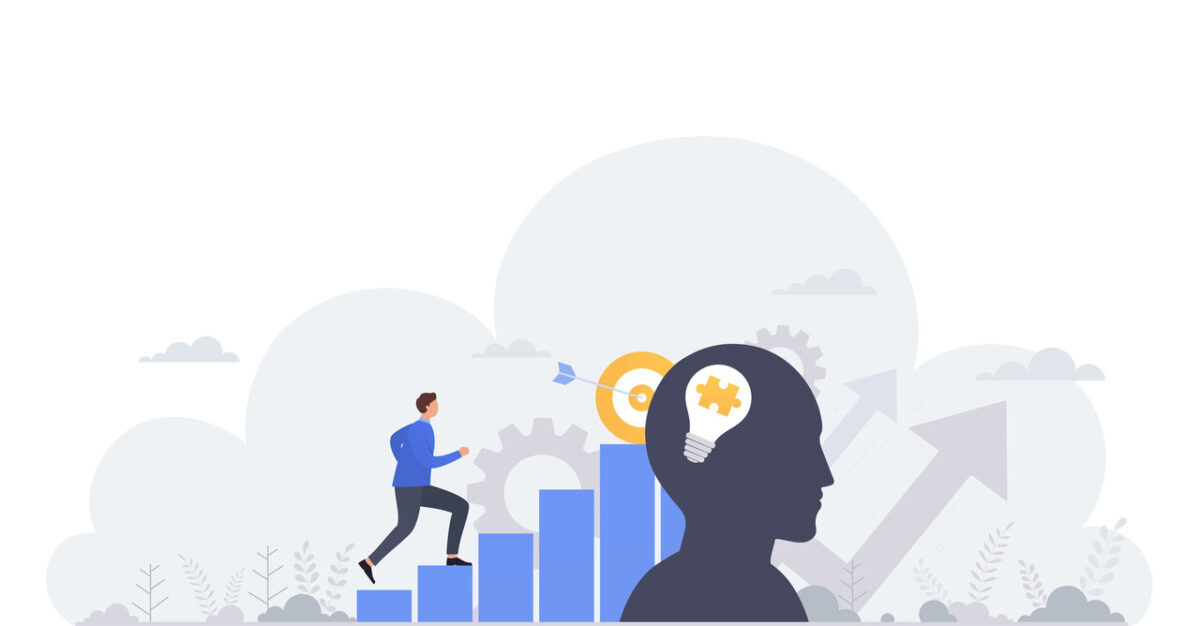The Power of Self-awareness for Personal Growth: 5 Reasons You Can’t Ignore

The Journey to Self-awareness for Personal Growth
Self-awareness for Personal Growth serves as the foundation for understanding your true self, which is the first step toward living an authentic and purpose-driven life. When you cultivate self-awareness, you not only become more in tune with your thoughts, emotions, and behaviors but also gain the clarity needed to navigate life’s challenges with confidence and resilience.
It empowers you to break free from limiting beliefs, recognize patterns that hinder progress, and create a life that aligns with your values and aspirations.
Achieving Self-awareness for Personal Growth means taking the time to reflect on your actions, understand your emotional triggers, and identify how your experiences have shaped who you are today. It’s about asking yourself the hard questions, confronting uncomfortable truths, and accepting yourself with compassion.
By doing so, you pave the way for personal transformation, enabling you to overcome obstacles, make informed decisions, and build more meaningful relationships.
While the path to self-awareness may not always be easy, it is undoubtedly rewarding. This guide will delve into the importance of self-awareness in fostering personal growth, providing you with practical tools and techniques to enhance your self-understanding.
As you continue reading, you will discover the transformative power of Self-awareness for Personal Growth, and how it can serve as the key to unlocking your full potential, leading to a life filled with purpose, fulfillment, and success.

Reason 1: Self-awareness Enhances Emotional Intelligence
Self-awareness for Personal Growth plays a pivotal role in developing and enhancing emotional intelligence, which is crucial for thriving in both personal and professional relationships.
Emotional intelligence comprises the ability to identify, comprehend, and manage your own emotions, as well as the emotions of others. By fostering self-awareness, you gain the insight needed to process your feelings more effectively and respond to various situations with empathy, patience, and understanding.
When you cultivate Self-awareness for Personal Growth, you become more adept at recognizing the emotional triggers that influence your behavior. This awareness allows you to take a step back and evaluate your responses, ensuring that your actions are guided by thoughtful consideration rather than impulsive reactions. As a result, you create healthier interactions with others, build deeper connections, and navigate conflicts with greater ease.
Why Emotional Intelligence Matters for Personal Growth
Emotional intelligence is a key driver of success in multiple areas of life. It enhances your ability to:
- Communicate Effectively: By understanding your emotions, you can express your thoughts and feelings more clearly, ensuring that your message is conveyed accurately.
- Build Stronger Relationships: Empathy, a core component of emotional intelligence, helps you understand others’ perspectives, fostering mutual respect and trust in your relationships.
- Resolve Conflicts Peacefully: When you’re self-aware, you’re better equipped to manage disagreements by addressing the root cause of conflicts without letting emotions escalate the situation.
- Adapt to Change: Self-awareness enables you to handle unexpected changes or challenges with resilience, allowing you to remain calm and focused even in difficult situations.
How to Improve Emotional Intelligence through Self-awareness
To leverage Self-awareness for Personal Growth in enhancing your emotional intelligence, consider integrating the following practices into your daily routine:
- Keep an Emotion Journal: Document your emotions throughout the day, noting the situations that triggered specific feelings. This exercise will help you identify patterns in your emotional responses and understand the root causes of your reactions.
- Practice Mindfulness: Engage in mindfulness exercises, such as meditation or deep breathing, to develop a heightened sense of self-awareness. Mindfulness encourages you to stay present in the moment, allowing you to observe your thoughts and emotions without judgment.
- Identify Emotional Triggers: Pay close attention to situations that evoke strong emotions, whether positive or negative. Understanding what triggers these emotions can help you develop strategies to manage them more effectively.
- Seek Constructive Feedback: Regularly ask trusted friends, family, or colleagues for feedback on how you handle your emotions. This external perspective can provide valuable insights into areas where you may need to improve.
- Practice Empathy: Make a conscious effort to put yourself in others’ shoes. By understanding their emotions and experiences, you develop greater empathy, which is a fundamental aspect of emotional intelligence.
The Impact of Emotional Intelligence on Personal Growth
Developing emotional intelligence through Self-awareness for Personal Growth not only improves your interpersonal skills but also contributes to your overall well-being.
It empowers you to respond thoughtfully to life’s challenges, maintain healthy relationships, and achieve greater success in both personal and professional endeavors. As you continue to strengthen your self-awareness, you’ll find yourself better equipped to handle stress, adapt to change, and lead a more fulfilling and balanced life.
By integrating self-awareness into your journey of personal growth, you’ll cultivate emotional intelligence that enhances every aspect of your life, enabling you to thrive in all interactions and create a more positive and impactful presence in the world.e, making Self-awareness for Personal Growth an invaluable asset in your journey toward becoming a more emotionally intelligent individual.

Reason 2: Self-awareness Helps Identify Strengths and Weaknesses
One of the most transformative aspects of Self-awareness for Personal Growth is its ability to help you gain a clear understanding of your strengths and weaknesses. This level of self-knowledge is fundamental for achieving your goals and unlocking your full potential. When you know what you’re good at and where you need improvement, you can make informed decisions, set realistic goals, and adopt strategies that propel you forward in your personal and professional life.
Why Identifying Strengths and Weaknesses Matters
The journey toward Self-awareness for Personal Growth is greatly enhanced when you can identify your unique talents, skills, and areas that require further development. This knowledge provides several benefits, such as:
- Maximizing Potential: Recognizing your strengths allows you to leverage them in various aspects of your life, enhancing productivity, efficiency, and confidence.
- Building Resilience: Understanding your weaknesses helps you develop strategies to overcome challenges, learn from setbacks, and grow stronger.
- Improving Decision-Making: Self-awareness enables you to make choices that align with your strengths, minimizing the risk of taking on tasks or projects that may lead to frustration or failure.
- Enhancing Career Opportunities: When you are aware of your strengths, you can pursue roles or projects that highlight your abilities, making you more valuable in the workplace.
How to Identify Your Strengths and Weaknesses
Developing Self-awareness for Personal Growth involves an honest assessment of your capabilities. Here are some practical strategies to help you gain clarity about your strengths and weaknesses:
- Conduct a SWOT Analysis (Strengths, Weaknesses, Opportunities, Threats): This analytical tool is often used in business but can be equally effective in personal development. List your strengths, weaknesses, opportunities for growth, and potential threats that could hinder your progress. This exercise offers a comprehensive view of where you stand and helps you create a plan for improvement.
- Engage in Self-Reflection: Set aside time regularly to reflect on your achievements, challenges, and areas of growth. Ask yourself questions like, “What activities do I excel in?” and “What tasks do I avoid because they seem difficult?” This reflection process is crucial for identifying patterns in your behavior and performance.
- Seek Constructive Feedback: Ask colleagues, friends, or family members for honest feedback about your strengths and weaknesses. Often, others can see qualities in us that we might overlook. This external perspective can be invaluable in developing a deeper sense of self-awareness.
- Analyze Past Experiences: Take a closer look at past experiences where you succeeded or faced challenges. What skills or attributes contributed to your success? What obstacles prevented you from achieving your goals? By analyzing these experiences, you gain insights into areas where you excel and those that need further development.
- Utilize Assessment Tools: There are various self-assessment tools and personality tests available online, such as the CliftonStrengths assessment or the Myers-Briggs Type Indicator (MBTI). These tools can provide detailed insights into your natural talents, preferences, and potential areas for improvement.
Leveraging Strengths and Addressing Weaknesses
Once you’ve identified your strengths and weaknesses, the next step in your journey toward Self-awareness for Personal Growth is to take action. Here’s how you can leverage your strengths and work on your weaknesses:
- Play to Your Strengths: Focus on tasks, projects, and activities that allow you to utilize your strengths. By concentrating on what you do best, you enhance your productivity, job satisfaction, and overall confidence.
- Develop Skills to Improve Weaknesses: Recognizing your weaknesses isn’t about criticizing yourself; it’s an opportunity to grow. Invest time in learning new skills, seeking mentorship, or taking courses that help you address areas that need improvement.
- Delegate or Collaborate: If possible, delegate tasks that fall outside your areas of strength to others who excel in those areas. Alternatively, collaborate with people whose strengths complement your weaknesses, allowing you to achieve better outcomes collectively.
The Impact of Identifying Strengths and Weaknesses on Personal Growth
By embracing Self-awareness for Personal Growth, you gain the clarity needed to build a life that aligns with your abilities and aspirations. Understanding your strengths enables you to pursue opportunities that bring fulfillment and success, while acknowledging your weaknesses empowers you to take proactive steps toward improvement.
Ultimately, the process of identifying your strengths and weaknesses is an ongoing journey. As you grow and evolve, your self-awareness will deepen, allowing you to continuously adapt, improve, and achieve your goals. This level of self-knowledge is a powerful catalyst for personal growth, enabling you to overcome challenges, build resilience, and unlock your full potential.

Reason 3: Self-awareness Facilitates Better Decision-Making
A pivotal benefit of developing Self-awareness for Personal Growth is its profound impact on your decision-making abilities. When you are self-aware, you gain a deeper understanding of your core values, beliefs, and motivations, which serves as a compass, guiding you in making choices that align with your true self. This heightened awareness enables you to make decisions that reflect your authentic desires, goals, and principles, ultimately leading to a more fulfilling life.
Why Self-awareness is Crucial for Decision-Making
Decision-making is an integral part of everyday life, from minor choices to life-changing decisions. Without Self-awareness for Personal Growth, it’s easy to fall into the trap of making impulsive choices driven by emotions, societal pressures, or the influence of others. Here’s why self-awareness plays a crucial role in enhancing your decision-making process:
- Clarity of Values and Priorities: When you are self-aware, you have a clear understanding of your core values and what truly matters to you. This clarity serves as a guiding light, helping you navigate complex decisions with confidence.
- Reduced Impulsivity: Self-awareness enables you to recognize your emotional triggers and impulsive tendencies. By understanding these aspects of yourself, you can pause and reflect before making decisions, leading to more thoughtful and intentional actions.
- Alignment with Long-term Goals: Making decisions that align with your long-term goals is essential for Personal Growth. Self-awareness ensures that your choices are in harmony with your aspirations, preventing you from deviating from your desired path.
How to Use Self-awareness for Better Decision-Making
Developing Self-awareness for Personal Growth provides you with practical tools to enhance your decision-making process. Here are some strategies that can help you make more informed and conscious choices:
- Define Your Core Values: Take time to identify and write down your core values. These values serve as a foundation for your decisions, ensuring that you make choices that align with your true self. For example, if honesty is one of your core values, you’ll be more inclined to make decisions that prioritize transparency and integrity.
- Analyze Past Decisions and Outcomes: Reflecting on past decisions is a powerful way to gain insights into your behavior patterns and tendencies. Consider decisions that led to positive outcomes and those that resulted in regret or dissatisfaction. By identifying what influenced your choices, you can make more informed decisions in the future.
- Practice Mindfulness and Self-reflection: Mindfulness is an excellent tool for developing Self-awareness for Personal Growth. Before making a significant decision, take a moment to pause and reflect on how it aligns with your long-term goals and values. Ask yourself questions like, “Why am I considering this option?” or “Does this decision reflect who I truly am?”
- Consider the Bigger Picture: Self-awareness allows you to see beyond immediate gratification and consider the long-term consequences of your actions. Before making a decision, think about how it will impact your future, relationships, and overall well-being. This perspective helps you make choices that contribute to your growth and happiness.
- Seek Guidance from Your Inner Voice: Your intuition is a valuable source of wisdom that often gets overlooked. When faced with a challenging decision, tap into your inner voice and trust your instincts. Developing Self-awareness for Personal Growth strengthens your connection with your intuition, helping you make choices that resonate with your true self.
The Role of Self-awareness in Avoiding Common Decision-Making Pitfalls
By cultivating Self-awareness for Personal Growth, you become more adept at recognizing and avoiding common pitfalls that can hinder your decision-making process. These pitfalls often include:
- Emotional Bias: Emotions can cloud your judgment, leading to impulsive or irrational decisions. Self-awareness helps you recognize when emotions are influencing your choices, allowing you to take a step back and assess the situation objectively.
- Overthinking and Analysis Paralysis: While it’s important to consider all aspects of a decision, overthinking can lead to indecision. Self-awareness enables you to identify when you’re overanalyzing and encourages you to trust your judgment.
- External Pressures: Societal expectations, peer pressure, or the opinions of others can impact your decisions. By developing self-awareness, you gain the confidence to make choices that align with your values, even if they go against the norm.
The Impact of Self-awareness on Personal Growth and Decision-Making
Incorporating Self-awareness for Personal Growth into your decision-making process leads to numerous benefits, including:
- Greater Confidence: When you make decisions that align with your values and goals, you build confidence in your ability to navigate life’s challenges.
- Improved Problem-Solving Skills: Self-awareness enhances your ability to analyze situations objectively, leading to more effective problem-solving and conflict resolution.
- Enhanced Resilience: By understanding your motivations and goals, you’re better equipped to handle setbacks and challenges, enabling you to bounce back stronger.
Real-Life Example: How Self-awareness Transforms Decision-Making
Imagine you’re considering a career change but feel uncertain about the risks involved. By practicing Self-awareness for Personal Growth, you take time to reflect on your values, goals, and passions. You realize that personal growth, creativity, and work-life balance are essential to you.
With this newfound clarity, you decide to pursue a career that aligns with these values, even if it means stepping out of your comfort zone. This decision, rooted in self-awareness, leads to greater fulfillment and success in the long run.

Reason 4: Self-awareness Improves Relationships
Developing Self-awareness for Personal Growth is a transformative step toward building and maintaining healthier, more fulfilling relationships. Relationships, whether personal or professional, thrive when individuals understand themselves and how their behaviors impact others.
Self-awareness allows you to gain a deeper insight into your emotions, reactions, and communication style, making you more empathetic, compassionate, and responsive in your interactions.
The Connection Between Self-awareness and Relationship Building
A lack of self-awareness can often lead to misunderstandings, conflicts, and emotional distance in relationships. By cultivating Self-awareness for Personal Growth, you become more attuned to your thoughts and emotions, which enables you to connect with others on a deeper level. Here’s how self-awareness positively impacts relationships:
- Enhanced Empathy: When you’re self-aware, you become more sensitive to the feelings and perspectives of others. You can put yourself in their shoes and understand their experiences, fostering empathy and creating a supportive environment.
- Better Conflict Resolution: Conflicts are inevitable in any relationship, but self-awareness for personal growth helps you manage them constructively. You can identify your emotional triggers and respond thoughtfully instead of reacting impulsively, which often leads to healthier resolutions.
- Clear Communication: Self-awareness enables you to express your needs, thoughts, and feelings clearly and assertively. This reduces the chances of misunderstandings and ensures that your message is conveyed accurately.
How to Use Self-awareness to Improve Your Relationships
Developing Self-awareness for Personal Growth provides you with valuable tools to nurture and strengthen your relationships. Here are practical strategies to enhance your self-awareness and, in turn, improve your interactions with others:
- Practice Active Listening: One of the most effective ways to improve relationships is by listening actively. When you practice active listening, you focus entirely on the speaker, without planning your response or judging their words. This approach helps you understand the other person’s perspective, making them feel valued and respected. As you develop self-awareness for personal growth, you become more mindful of your listening habits, which enhances your ability to connect with others.
- Recognize Your Emotional Triggers: We all have emotional triggers that can lead to misunderstandings or conflicts. By identifying and acknowledging these triggers, you gain the power to respond calmly and thoughtfully, rather than reacting impulsively. For instance, if you notice that you tend to get defensive when receiving feedback, being self-aware allows you to pause, reflect, and respond in a way that promotes constructive dialogue.
- Express Yourself Honestly and Respectfully: Being self-aware means understanding your emotions, thoughts, and needs. When you can express yourself honestly and respectfully, you create a space for open communication and trust. For example, instead of saying, “You never listen to me,” you can express, “I feel unheard when my thoughts are interrupted, and I would appreciate it if we could take turns sharing our perspectives.”
- Acknowledge Your Role in Conflicts: Self-awareness helps you recognize your part in conflicts, enabling you to take responsibility for your actions and behaviors. Instead of blaming others or playing the victim, you can reflect on your contribution to the issue and work toward finding a resolution. This level of accountability fosters healthier relationships and encourages mutual respect.
- Cultivate Emotional Intelligence: Emotional intelligence is closely linked to Self-awareness for Personal Growth. By understanding your emotions and how they influence your behavior, you become more skilled at managing your reactions and responding empathetically to others. This, in turn, leads to more harmonious and balanced relationships.
The Impact of Self-awareness on Different Types of Relationships
Developing Self-awareness for Personal Growth can enhance various types of relationships in different ways:
- Romantic Relationships: Self-awareness helps you understand your needs, desires, and boundaries, allowing you to communicate more openly and honestly with your partner. This clarity fosters trust, intimacy, and a stronger emotional connection.
- Friendships: By being self-aware, you become more considerate of your friends’ feelings and perspectives. You’re able to support them genuinely, listen without judgment, and offer advice that aligns with their needs.
- Professional Relationships: In the workplace, self-awareness enables you to collaborate effectively, manage conflicts, and communicate assertively. It also helps you understand your strengths and weaknesses, making you a more valuable team member and leader.
- Family Relationships: Self-awareness allows you to navigate family dynamics with greater understanding and patience. You can identify patterns of behavior that may contribute to tension and work on resolving them constructively.
How Self-awareness Transforms Interpersonal Dynamics
By incorporating Self-awareness for Personal Growth into your interactions, you’ll notice several positive changes in your relationships:
- Increased Trust and Respect: When you’re self-aware, you approach relationships with authenticity and integrity. This fosters an environment of trust and respect, as others feel more comfortable being themselves around you.
- Deeper Connections: Self-awareness enables you to connect with others on a deeper level. You’re more attuned to their needs and emotions, which strengthens the bond and creates a sense of belonging.
- Reduced Misunderstandings: Miscommunications often arise from assumptions and misinterpretations. Being self-aware helps you express yourself clearly and ensures that your intentions are understood, reducing the chances of misunderstandings.
Real-Life Example: The Role of Self-awareness in Relationship Improvement
Imagine a scenario where you frequently argue with a colleague about project deadlines. Instead of blaming them for being inflexible, you take a moment to reflect on your behavior and realize that you tend to procrastinate, leading to last-minute stress.
With this newfound self-awareness, you take responsibility for your actions and communicate your challenges honestly. This open dialogue fosters mutual understanding, and you both agree to implement strategies to improve time management, ultimately enhancing your working relationship.
By developing Self-awareness for Personal Growth, you gain the ability to understand yourself and others more profoundly, creating the foundation for healthier, more fulfilling relationships.

Reason 5: Self-awareness Enables Personal Accountability
Self-awareness for Personal Growth plays a pivotal role in fostering personal accountability, which is a crucial aspect of achieving lasting success and fulfillment. Personal accountability means taking full responsibility for your actions, choices, and behaviors instead of shifting blame onto external factors or other people.
By developing self-awareness, you gain a deeper understanding of how your decisions impact your life and the lives of those around you, empowering you to make conscious choices that align with your goals and values.
The Link Between Self-awareness and Personal Accountability
Many individuals find it challenging to take responsibility for their actions, often resorting to excuses, rationalizations, or blaming others when things don’t go as planned. However, when you cultivate Self-awareness for Personal Growth, you become more attuned to your thoughts, emotions, and behaviors, making it easier to recognize when you’re veering off course. This heightened awareness allows you to take ownership of your actions and make adjustments as needed, leading to more positive outcomes.
Here’s how self-awareness directly influences personal accountability:
- Recognizing Your Role in Outcomes: Self-awareness enables you to identify how your actions, habits, and decisions contribute to your successes and failures. Instead of attributing outcomes to luck or external circumstances, you take responsibility for the role you played, which is a crucial step in personal growth.
- Accepting Mistakes and Learning from Them: Being self-aware means acknowledging when you’ve made a mistake or poor decision. Instead of ignoring or justifying these errors, you take ownership and use them as learning opportunities to grow and improve.
- Aligning Actions with Values: When you develop Self-awareness for Personal Growth, you gain clarity about your core values and beliefs. This awareness helps you act in ways that align with your principles, ensuring that your choices reflect your true self.
Practical Steps to Cultivate Personal Accountability Through Self-awareness
To foster personal accountability as part of your Self-awareness for Personal Growth journey, consider implementing the following strategies:
- Set Clear and Achievable Goals: One of the first steps to becoming more accountable is to set clear, specific goals that align with your values and aspirations. When you know what you want to achieve, it’s easier to take responsibility for the actions needed to reach your goals. Self-awareness for Personal Growth helps you understand why these goals are important to you, motivating you to stay committed.
- Track Your Progress Regularly: Monitor your progress toward your goals and reflect on the steps you’ve taken. Self-awareness allows you to recognize whether you’re moving in the right direction or if adjustments are needed. Regularly reviewing your actions keeps you accountable and ensures that you stay on track.
- Acknowledge Your Mistakes Without Judgment: Mistakes are an inevitable part of life, but they can be valuable learning experiences. By developing Self-awareness for Personal Growth, you learn to acknowledge your mistakes without harsh self-criticism. Instead, you view them as opportunities to grow and make better choices in the future.
- Seek Feedback from Others: Engaging with others who can offer constructive feedback is an excellent way to build personal accountability. Self-awareness for Personal Growth enables you to accept feedback with an open mind and use it to improve your behavior, skills, or approach. This willingness to learn from others’ perspectives strengthens your commitment to personal growth.
- Practice Self-reflection: Regular self-reflection is essential for cultivating personal accountability. Take time to evaluate your actions, decisions, and their impact on your life. By being honest with yourself about your behavior and choices, you develop a greater sense of responsibility and make more intentional decisions.
The Benefits of Personal Accountability in Your Growth Journey
When you integrate personal accountability into your Self-awareness for Personal Growth journey, you experience several profound benefits:
- Increased Confidence and Self-esteem: Taking responsibility for your actions and decisions builds confidence and self-esteem. You begin to trust your ability to make positive changes and handle challenges, which further fuels your personal growth.
- Enhanced Problem-solving Skills: Self-awareness helps you identify areas where you need improvement and encourages you to develop solutions. As a result, you become more resourceful and capable of overcoming obstacles.
- Improved Relationships: When you hold yourself accountable, others are more likely to trust and respect you. This level of accountability fosters stronger connections, whether in your personal or professional life, as people appreciate your honesty, reliability, and willingness to take ownership.
How Personal Accountability Transforms Your Life
Integrating personal accountability into your Self-awareness for Personal Growth journey leads to transformative changes in various aspects of your life:
- Career Advancement: Taking responsibility for your work, decisions, and contributions makes you a more reliable and valuable team member or leader. Employers and colleagues appreciate individuals who are accountable, as it demonstrates a high level of professionalism and commitment.
- Personal Relationships: When you are accountable for your actions, you create an environment of trust and respect in your relationships. You’re more likely to apologize when you’re wrong, make amends, and learn from conflicts, which strengthens your bonds with others.
- Financial Management: Self-awareness and personal accountability play a significant role in managing your finances effectively. By taking responsibility for your spending habits, financial decisions, and goals, you’re better equipped to create a stable and secure financial future.
Real-life Example: The Impact of Self-awareness on Personal Accountability
Imagine a scenario where you’ve set a goal to lead a healthier lifestyle, but you find yourself consistently skipping workouts and opting for unhealthy food choices. Without self-awareness, you might blame your busy schedule, stress, or lack of motivation.
However, by embracing Self-awareness for Personal Growth, you recognize that your choices are within your control. You acknowledge that procrastination and poor time management are contributing to your lack of progress. Armed with this awareness, you take responsibility, adjust your schedule, and commit to healthier habits, leading to better results.
The Role of Accountability Partners in Self-awareness
Sometimes, having an accountability partner can be a valuable addition to your Self-awareness for Personal Growth journey. An accountability partner is someone who supports your goals, provides constructive feedback, and holds you accountable for your actions. This partnership can significantly boost your self-awareness by offering an external perspective on your behavior, helping you stay focused, and encouraging you to make consistent progress.
Key Takeaways
- Personal accountability is a powerful tool that enhances your Self-awareness for Personal Growth journey.
- By taking responsibility for your actions, decisions, and behaviors, you become more intentional and empowered in your life.
- Cultivating personal accountability leads to increased confidence, improved relationships, and a greater sense of fulfillment.
By embracing Self-awareness for Personal Growth and incorporating personal accountability into your daily life, you set the stage for meaningful change and a more purpose-driven existence.

Embracing Self-awareness for Personal Growth
Self-awareness for Personal Growth is not just a destination but a lifelong journey that demands consistent effort, introspection, and a willingness to confront your inner self.
It’s about taking the time to reflect on your thoughts, emotions, and behaviors, and being open to understanding how these aspects shape your actions and interactions. The more you practice self-awareness, the more you unlock your potential for growth, resilience, and personal fulfillment.
As you actively implement the strategies and insights shared in this guide, you’ll begin to witness the profound impact that Self-awareness for Personal Growth can have on every aspect of your life.
Whether it’s enhancing your relationships, making more informed decisions, or developing a stronger sense of purpose, self-awareness empowers you to navigate life with clarity and confidence. It allows you to identify patterns that no longer serve you, make conscious choices that align with your values, and cultivate habits that support your goals.
Remember, the journey to self-awareness is ongoing, and it’s essential to approach it with patience and kindness towards yourself. There will be moments of challenge and self-discovery, but each step you take brings you closer to becoming the best version of yourself.
By embracing Self-awareness for Personal Growth, you give yourself the opportunity to live a more authentic, empowered, and meaningful life. It’s not about striving for perfection but about embracing your imperfections and learning from them.
The more you commit to this journey, the more you’ll find that self-awareness is the key to unlocking your potential, achieving your goals, and living a life that is truly aligned with who you are.
Start today, take small steps, and allow the power of self-awareness to guide you toward a life filled with purpose, joy, and endless possibilities. Embrace the transformative journey of Self-awareness for Personal Growth, and watch as you evolve into the person you were always meant to be.

Frequently Asked Questions (FAQs)
What is self-awareness, and how can it help with personal growth?
Self-awareness is the ability to recognize and understand your thoughts, emotions, and behaviors. It aids in personal growth by helping you identify patterns that may be limiting your progress, allowing for conscious and positive changes.
Why is self-awareness important for personal and professional growth?
Self-awareness is crucial because it helps identify your strengths and areas for improvement, allowing you to make more conscious choices and develop essential skills for personal and professional success.
How can I start developing self-awareness in my life?
You can start developing self-awareness by practicing meditation, maintaining a journal, seeking feedback from others, and regularly reflecting on your actions and emotions.
What is the relationship between self-awareness and emotional intelligence?
Self-awareness is one of the pillars of emotional intelligence. By developing self-awareness, you enhance your ability to recognize and manage your own emotions and understand the emotions of others.
Can self-awareness improve my personal relationships?
Yes, self-awareness improves relationships by allowing you to better understand your emotional reactions and the needs of others, facilitating communication and conflict resolution.
What is the difference between self-awareness and self-confidence?
Self-awareness is the ability to understand and recognize your emotions and behaviors, while self-confidence is the belief in your abilities and skills. Self-awareness can help build self-confidence by allowing you to acknowledge your strengths.
How can mindfulness practice contribute to the development of self-awareness?
Mindfulness encourages paying attention to the present moment, helping you observe your thoughts and emotions without judgment, which enhances self-awareness.
Can self-awareness be developed at any age?
Yes, self-awareness can be developed at any age. It’s a skill that can be improved throughout life through practice and self-reflection.
How can self-awareness help with decision-making?
By developing self-awareness, you gain a better understanding of your values, emotions, and motivations, enabling you to make decisions that align with your goals and principles.
Can self-awareness help reduce stress and anxiety?
Yes, self-awareness can help reduce stress and anxiety by allowing you to recognize your emotional triggers and develop strategies to manage them more effectively.
How can self-awareness impact my career?
Self-awareness can positively impact your career by helping you identify your skills and areas for improvement, enabling more focused and effective professional development.
Are there any tools or tests that can help measure my self-awareness?
Yes, there are several tools, such as the MBTI (Myers-Briggs Type Indicator) personality test and Daniel Goleman’s emotional intelligence model, that can help measure your self-awareness and provide insights into your profile.
How can self-awareness help me achieve my personal goals?
Self-awareness allows you to identify your goals, values, and areas for development, making it easier to plan and execute actions that align with your personal objectives.
Can self-awareness improve my work performance?
Yes, self-awareness enhances work performance by allowing you to recognize your strengths and limitations, helping you develop essential skills for success and effective collaboration with colleagues.
What is the relationship between self-awareness and empathy?
Self-awareness is the foundation of empathy, as understanding your own emotions enables you to connect with and understand the emotions of others.
Can self-awareness help improve self-esteem?
Yes, by developing self-awareness, you recognize your strengths and achievements, which can boost your self-esteem and self-confidence.
How can I incorporate self-awareness into my daily routine?
You can incorporate self-awareness into your routine by setting aside moments for reflection, practicing mindfulness, seeking feedback from others, and keeping a journal to record your thoughts and emotions.
What are the main obstacles to developing self-awareness?
The main obstacles to developing self-awareness include a lack of time for self-reflection, fear of facing negative aspects of oneself, and resistance to feedback from others.
Can self-awareness help achieve a work-life balance?
Yes, self-awareness helps achieve a work-life balance by allowing you to recognize your needs and priorities, making it easier to make decisions that benefit both aspects of your life.
How can I use self-awareness to overcome challenges and achieve success?
Self-awareness enables you to identify your weaknesses and emotional triggers, helping you develop strategies to overcome challenges and stay focused on your goals, paving the way for personal and professional success.
Thank you, and increase your productivity even more here.
